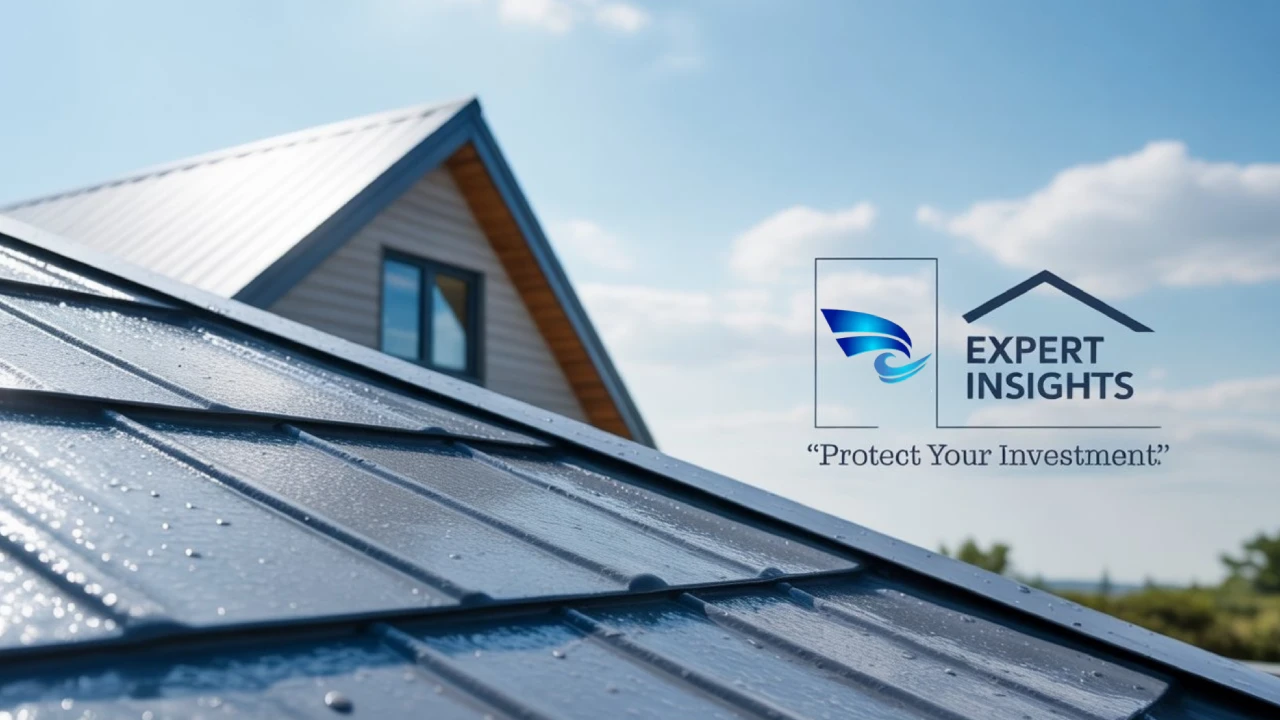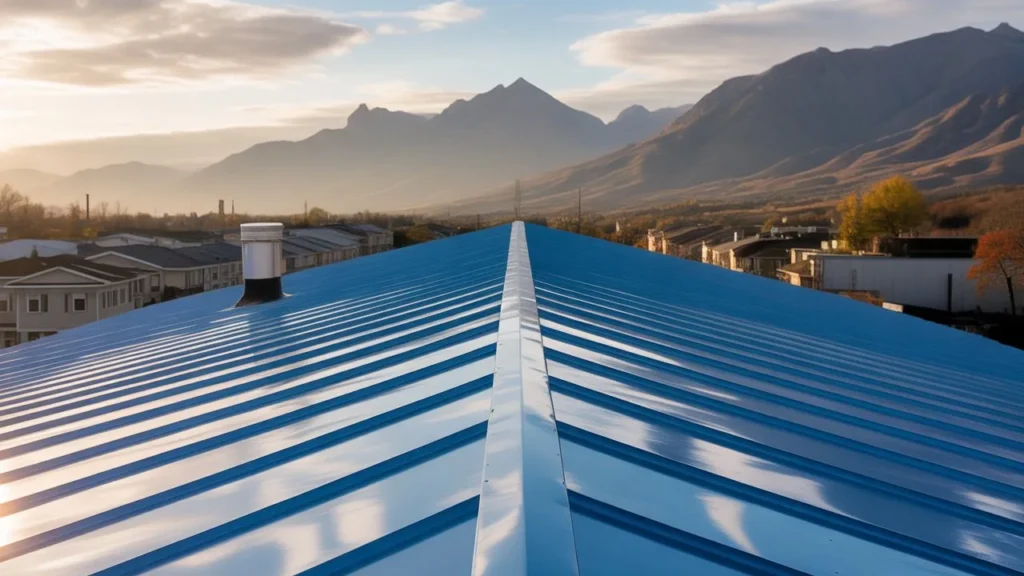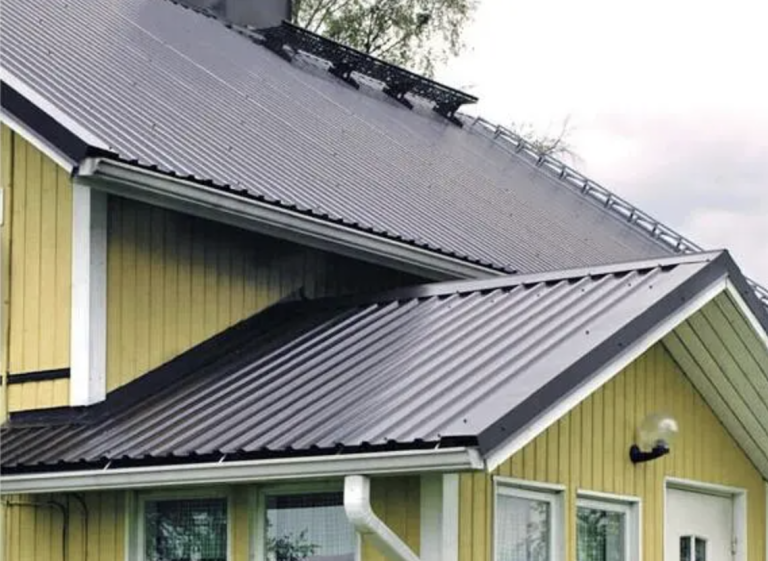Does Aluminum Roof Coating Stop Leaks? Expert Insights 2025

Many people think a shiny silver roof coating will stop leaks right away. It looks strong and bright, so it feels like a quick fix. But does it actually seal up every drip?
This guide gives clear answers. Find out what aluminum roof coating can and cannot do for roof leaks, so you know what to expect.
Related products: Aluminum roofing panels
What Is Aluminum Roof Coating?
Aluminum roof coating is a liquid applied to roofs. It contains aluminum flakes, binders like asphalt or acrylic, and solvents. When it dries, it forms a shiny, reflective layer. This layer helps block sunlight and protects the roof from water damage.
The aluminum flakes reflect sunlight. Binders hold the coating together and add strength. Solvents keep the mixture smooth for easy application. Some coatings include fibers to make them tougher.
This coating works best on flat or low-slope roofs. These include metal, asphalt, and built-up roofs. Avoid using it on steep shingle roofs.
Its main benefits are saving energy, blocking harmful UV rays, and slowing roof wear. It does not fix all types of leaks.
Can Aluminum Roof Coating Stop Leaks?
Aluminum roof coating can stop some leaks, but it depends on the cause and size of the leak.
It works well on small cracks, pinholes, seams, and nail holes. These minor issues won’t turn into bigger problems when sealed early.
However, it cannot fix active leaks caused by damaged roof panels, broken flashing, or major roof damage. It also fails with ponding water or soaked insulation.
This coating provides water resistance. It does not create a fully waterproof barrier. For serious leaks, you need a proper repair, not just coating.
Benefits of Aluminum Roof Coating Beyond Leak Prevention

Reflects Sun and Cuts Cooling Costs
Aluminum roof coating reflects up to 85% of the sun’s rays. This keeps roofs cooler on hot days. Cooler roofs lower air conditioning use and save energy bills, especially in warm climates.
Extends Roof Life
The coating blocks UV rays, rain, and heat. This slows the roof’s aging. It reduces cracks and material wear. On metal roofs, it also stops rust and corrosion for many years.
Resists Harsh Weather
The coating stands up to rain, snow, hail, and strong winds. It performs well through all seasons. Regular upkeep helps avoid expensive repairs or a full roof replacement.
Improves Environment and Appearance
Reflecting sunlight reduces urban heat and supports eco-friendly buildings. A fresh coat also brightens a property and may increase its market value.
Limitations and Drawbacks of Aluminum Roof Coatings
Not a Complete Leak Fix
Aluminum coatings do not stick well to wet, dirty, or damaged roofs. They cannot fix leaks from broken structures or bad underlayment. These coatings resist water but only seal surface cracks. They do not stop the heavy water flow.
Not for All Roof Types
Aluminum coatings work best on flat or low-slope roofs made of metal or built-up layers. They are not good for steep roofs, shingles, or tiles.
Needs Maintenance
The coating’s protection fades over time, especially with standing water or damage. You must reapply it every 3 to 7 years to keep it working well.
How to Apply Aluminum Roof Coating?
Surface Preparation
- Clean the roof to remove dirt, dust, leaves, moss, and loose materials.
- Remove any rust and loose paint.
- Repair large holes, cracks, and damaged flashings before coating.
- Make sure the roof is completely dry before applying.
Application
- Use a brush, roller, or sprayer to spread the coating evenly.
- Apply when the weather is dry and temperatures are mild.
- Coverage is usually 1 to 1.5 gallons per 100 square feet for fibered coatings.
Common Mistakes
- Avoid coating over wet, dirty, or active leak areas.
- Coating over these causes peeling, bubbles, and failure.
- Take your time prepping. Rushing leads to poor results.
Alternative Roof Coating Options for Leak Prevention
Elastomeric Roof Coatings
Elastomeric coatings stretch and bend with roof movement. They fill cracks better than aluminum. They also resist water more effectively, making them good for roofs with shifts or standing water.
Silicone Roof Coatings
Silicone coatings block leaks well. They handle pooled water without damage. They resist UV rays, so they last longer in sunny areas.
Bitumen/Asphalt Coatings
Bitumen and asphalt coatings provide strong waterproofing. They cost more and reflect less sunlight than aluminum. These coatings suit heavy-duty leak protection needs.
Comparing Roof Coating Types
| Coating Type | Best For | Leak Resistance | Reflectivity | Cost/Value |
|---|---|---|---|---|
| Aluminum | Minor cracks, cool roof | Moderate | High | Moderate |
| Silicone | Ponding water, active leaks | High | High | Higher |
| Acrylic | UV, flat roofs | Low-Moderate | High | Low-Moderate |
| Asphalt | Heavy-duty sealing, repairs | High | Low | Moderate |
Signs Aluminum Coating Won’t Fix the Leak
- Leaks that continue after rain
- Roof parts that sag, rot, or rust
- Wet insulation or trapped moisture underneath
- Large cracks or gaps are visible on the surface
If you see these signs, aluminum coating alone won’t fix the leak. You need proper roof repair.
Frequently Asked Questions
Typically, 3–7 years. Location, weather, and roof maintenance impact longevity.
No. Only on flat or low-slope metal, asphalt, or built-up roofs—never on shingles or tiles.
Highly reflective, it reduces energy use and helps mitigate the heat island effect. Some products use low-VOC, recyclable materials.
Every 3–7 years is typical, or sooner if the coating shows signs of wear.
Conclusion: Should You Use Aluminum Roof Coating for Leaks?
Aluminum roof coating helps extend roof life and save energy. It can fix small surface leaks. But it will not fix major leaks or deep damage.
Fix any roof damage before applying the coating. For strong leak protection, add waterproof coatings like elastomeric or silicone. Use aluminum coating as a layer of protection, not as a quick patch.






